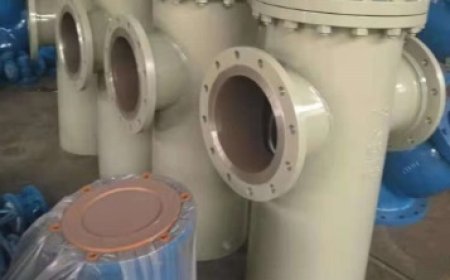Winning Trust with GMP Certification for Food and Beverage Companies
GMP It fits, Another for myth your? company “It’s too pricey—pricey.” GMP training myth and is audits cost less than a single recall—trust me, I know’ve seen, I’ve seen the numbers.

Running a food and beverage company is like crafting a perfect recipeevery ingredient, every step, every detail needs to come together to delight your customers. Youre not just making snacks or drinks; youre serving trust on a plate. Thats where GMP certification comes in, your guide to ensuring safety and quality in every bite or sip. Whys GMP certification a must for food and beverage companies? How do you make it work without stirring up chaos in your kitchen? Lets dig in and see how this standard can make your brand shine.
Why Safety and Quality Are Your Secret Ingredients
Picture this: your latest batch of juice hits store shelves, and customers cant get enough because they know its safe and delicious. Now imagine the oppositea contamination issue sparks a recall, tarnishing your name. GMP certification, short for Good Manufacturing Practices, ensures food and beverage companies produce safe, high-quality products that meet global standards. Its like a master chefs checklist, keeping every process spot-on.
Why should you care? Consumers and regulators, like the FDA or EU authorities, demand safety. GMP certification helps food and beverage companies avoid costly recalls, win loyal customers, and open doors to new markets. Plus, it streamlines your productionless waste, more wins. Who wouldnt want a business that serves up trust with every product?
GMP Certification: More Than a Health Check
You might think, We already sanitize and test. Do food and beverage companies need GMP certification? Heres the thingits not just about clean counters; its about a system that locks in safety and quality from start to finish. GMP certification covers everything from ingredient sourcing to packaging, ensuring nothing goes awry. Think of it like upgrading from a home kitchen to a commercial onesame goal, way tighter control.
This certification involves your whole team, from line workers to quality managers. Thats a big deal. When food and beverage companies embrace gmp certification, they catch issueslike a faulty supplier or improper storagebefore they spoil a batch. I once heard about a bakery whose GMP certification caught a labeling mix-up, saving an export deal to Europe. Thats the kind of save were talking about.
Whats Cooking with GMP Certification?
So, whats GMP certification all about? Its a set of guidelines ensuring food and beverage companies produce safe, consistent products. You start by assessing your processeshow you store ingredients, mix recipes, or clean equipment. Then, you set controls, document results, and keep improving. Its like perfecting a family recipe: tweak the steps, taste often, and serve something amazing.
Heres what it covers:
-
Hygiene standards: Keep facilities and staff squeaky clean.
-
Process controls: Ensure recipes and production stay consistent.
-
Quality checks: Test ingredients and products for safety.
-
Documentation: Keep records to prove compliance.
-
Training: Equip your team to handle every step safely.
Sounds like a full plate, right? But GMP certification breaks it down, making food and beverage companies sharper without the overwhelm.
Your Recipe for GMP Certification
Alright, lets whip up the plan for food and beverage companies chasing GMP certification. Its not mandatory, but its like a Michelin star that sets you apart. Start by studying GMP guidelinesavailable from organizations like the FDA or Codex Alimentarius. Then, build your system, document it, and train your team. Finally, a third-party auditorlike NSF or SGSchecks your work.
Heres the recipe:
-
Assess your kitchen: Compare your processes to GMP requirements.
-
Plan your system: Set goals, like better sanitation or supplier checks.
-
Document everything: Create policies, checklists, and logs.
-
Roll it out: Implement across your teamproduction, packaging, QA.
-
Get audited: Pass the audit, and youre certified.
Its a big task, no doubt. A juice producer I know likened it to a catering company catering for a big clienthectic at first, but the payoffs worth it. Expect some spills, but keep your focus on the prize for food and beverage companies.
Where Companies Burn the Dish
Heres the real talk: GMP certification can trip up even the savviest food and beverage companies. One common misstep? Thinking its just for the production floor. GMP spans your whole operationwarehouses, suppliers, even delivery trucks. Another slip-up is a chore. Those logs are your proof when regulators or buyers ask questions.
And dont forget your teams buy-in. If your staff sees GMP certification as extra work, youre in hot water. Get them excitedshow how it protects customers and makes their jobs easier. I heard about a candy maker who botched GMP certification because part-timers skipped training. Result? A contamination scare that cost them a big retailer. Lesson: train everyone, always.
The Flavor of Trust
Lets pause for a secondpause. The food and beverage business isnt just about taste; its about people. Your productschocolates, juices, or snacksbring joy to families, cafs, and grocery stores worldwide. GMP certification ensures you deliver safety and quality they can trust. Thats a big deal, isnt it? Knowing your lemonade or cookies brighten someones day?
I once met a quality manager at a spice company who said GMP certification gave her team pride. They knew their certified blends were safe for kitchens globally. Thats not just a legacy. When food and beverage companies embrace GMP certification, theyre building trust with every package.
Tools to Stir the Pot
You dont have to chase GMP certification alonealone. Then, like software like FoodLogiQ or SafetyChain, can streamline compliance and record-keepingkeeping for food and beverage companies. Training programs from NSF, or like BSI, offer flexible coursesonline or in-person. And dontignore simple tools like a shared checklist for sanitation tasks. Sometimes, basic keeps you on track.
Heres a tip: Start with one product line, like your top-selling snack, during your certification process. Then, its like a perfecting a single dish before opening a restaurantmaster a dish the basics first.
The Payoff for Food and Beverage Companies
So, Why, why go through the hassle? Because GMP certification delivers big for food and beverage companies. It wins clientsbig retailers like Carrefour or Whole Foods often demand it. It saves moneyfewer errors mean less waste and fewer recalls. And dont boosts your brand. Consumers love food and beverage companies they can rely on, whether youre making bread or beverages.
Plus, its global. From GMP certification signals quality to Tokyo, or Paris to, its a huge edge for international markets. Thats huge if youre eyeing exports for exports. And dontlets not forget the warm fuzziesknowing your products are safethats something to toast to?
Busting GMP certification Myths
Lets clear up some nonsensenonsense. Heres food Some and beverage companies think GMP certification is only for massive factories. Nope. Thats whether youre a small brewery or a global food and giant. GMP It fits, Another for myth your? company Its too priceypricey. GMP training myth and is audits cost less than a single recalltrust me, I knowve seen, Ive seen the numbers.
And, no, its not justa paperwork nightmarenightmare. No, GMP certification makes your business tighter safer, not buried in forms. A Think of it like a like a kitchen timer for your productionannoying tough at first, but it keeps your everything production safe. safe.
A Summer Sizzle: Peak Food Season
Since its JuneJunes 2025, lets talk summersummer. Warm weather sparks a sales boomthink ice cream, sodas, or picnic snacks flying off shelvesshelves. GMP certification helps food and beverage companies handle the rush, ensuring products stay safe under pressurepressure. Nobody wants a contamination issue during peak season, rightright? Get certified nownow, and youll sizzle through the heatheat.
A Quick Detour: The Consumer Connection
Heres a side notenote. Todays consumers arent just eatingtheyre sharingsharing. A safe, tasty product gets raved about on platforms like Instagram or XX. A recallrecall? Thats a viral disaster waiting to explodeexplode. GMP certification keeps your food and beverage companys reputation sparkling, not trending for the wrong reasonsreasons. In this social media age, thats pure goldgold.
Your Next Steps: Kicking Off GMP Certification
Ready to fire up the ovensovens? Grab the GMP guidelines from the FDA or Codex Alimentarius websiteswebsite. Read themit, scribble notes, make it yoursyours. Then, rally your team at your food and beverage companycompany. Share stories of why it mattersmaybe a past close call or a dream of landing Walmart shelvesshelves. If it feels daunting, bring in a consultanttheyre; theyre like a sous-chef for your certification journeyjourney.
Dont wait for a slow dayday. Start with a single process, like ingredient checkschecks, in your food and beverage companycompany. Momentum builds fastfast, and soonsoon, GMP certification will be your businesss secret ingredientingredient.
Wrapping Up: A Recipe for Success
GMP certification isnt just a standardits; its your ticket to thriving in the food and beverage worldworld. Its about delivering products customers trusttrust, saving moneymoney, and building a brand that lastslasts. Suresure, the journey has its challengeschallenges, but the rewardsrewards? Bigger clientsclients, a stellar reputationreputation, and the pride of serving safesafe, delicious goodsgoods.
SoSo, whats holding you backback? Your food and beverage company has the potential to lead the packpack. GMP certification is your reciperecipe. Grab itit, cook it upup, and lets create a future thats safesafe, trustedtrusted, and downright deliciousdelicious.





































![Play99 Login & Registration Guide for Indian Users [2025 Update]](https://www.atlantanewsplus.com/uploads/images/202507/image_140x98_6870c1df7bfcd.jpg)
